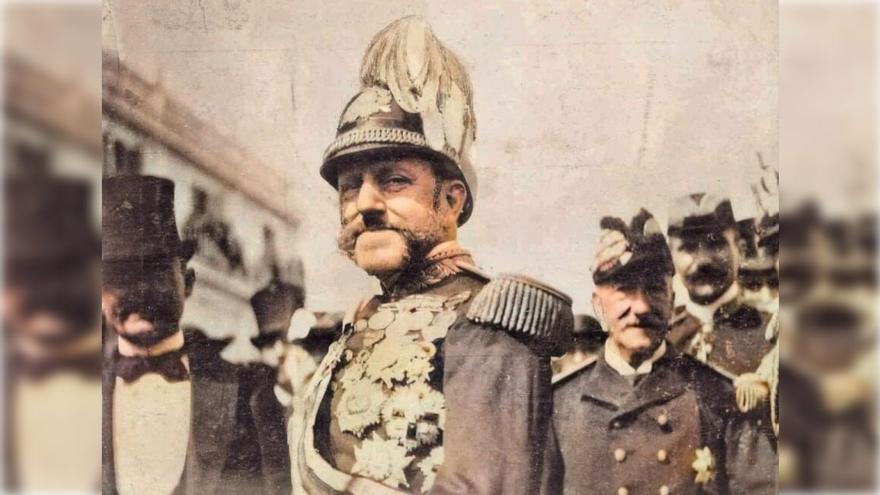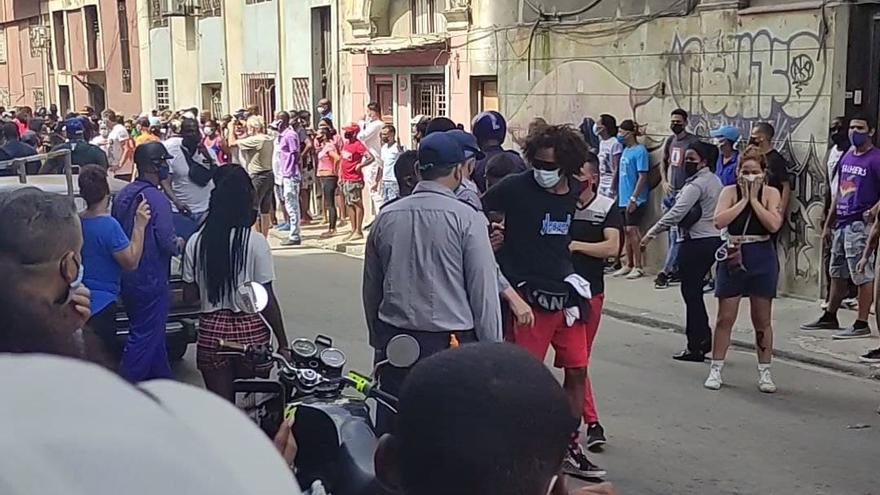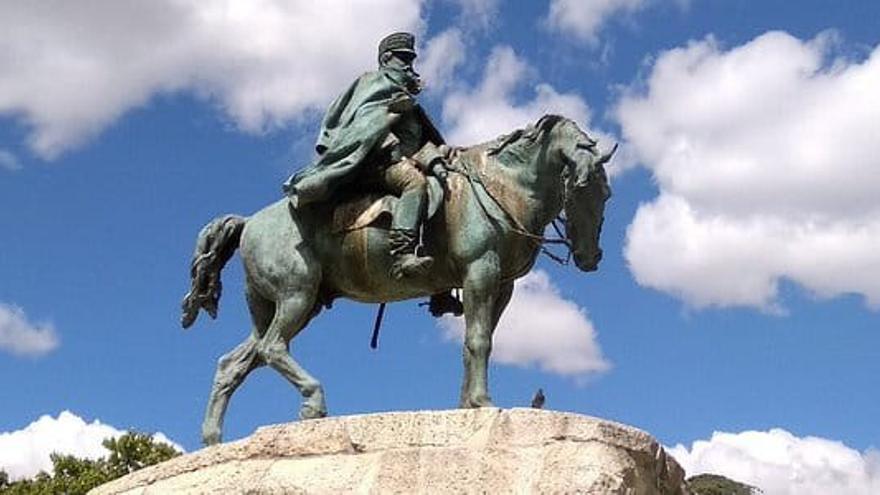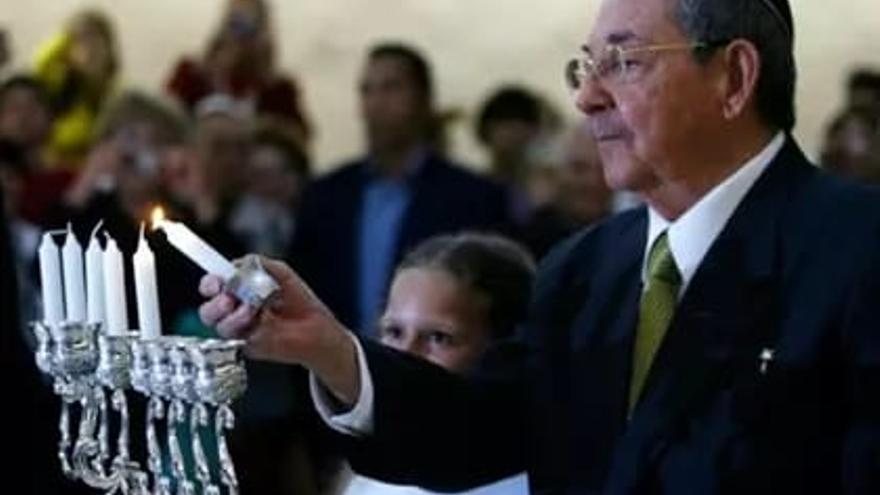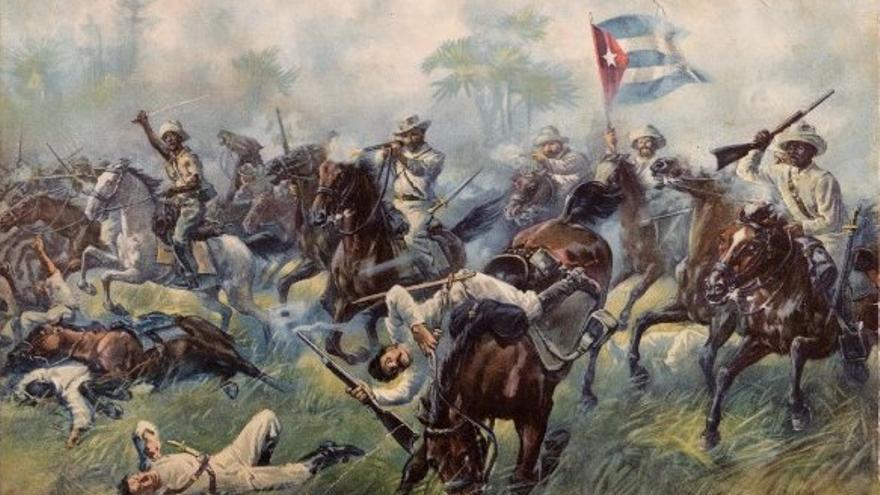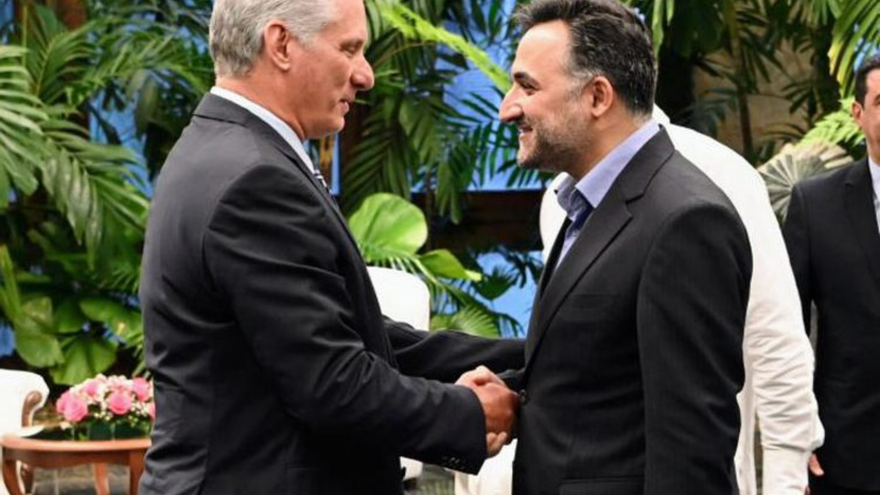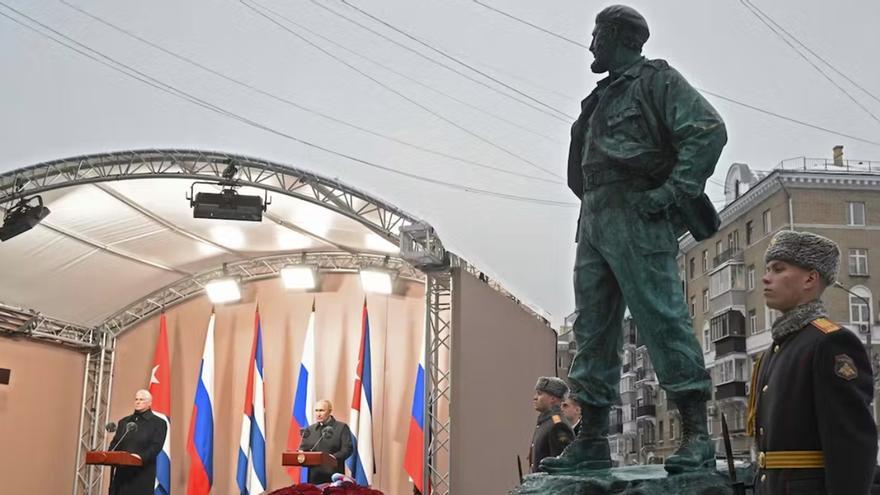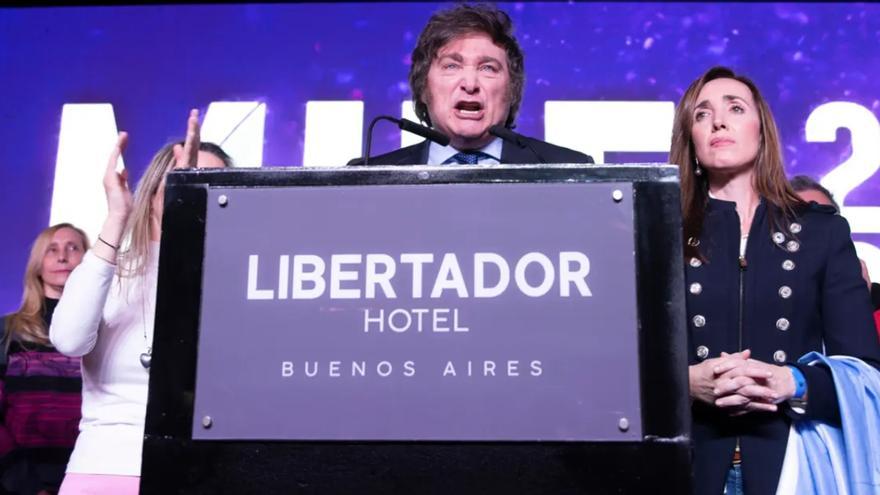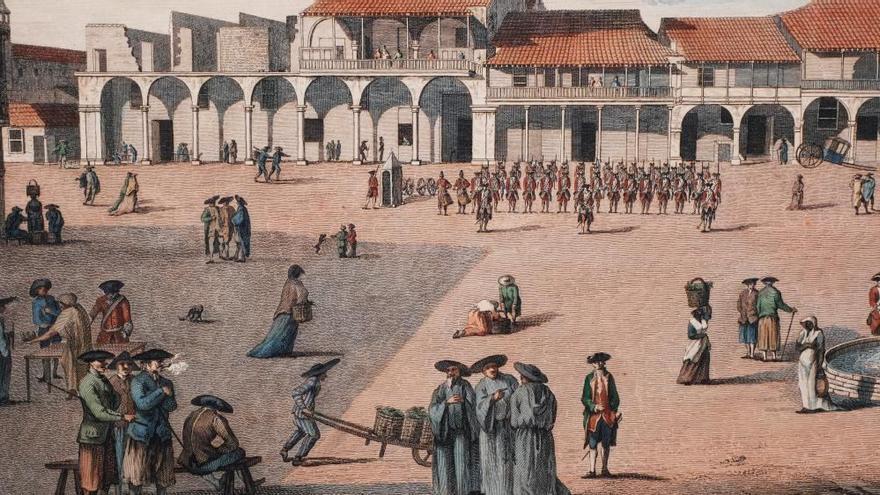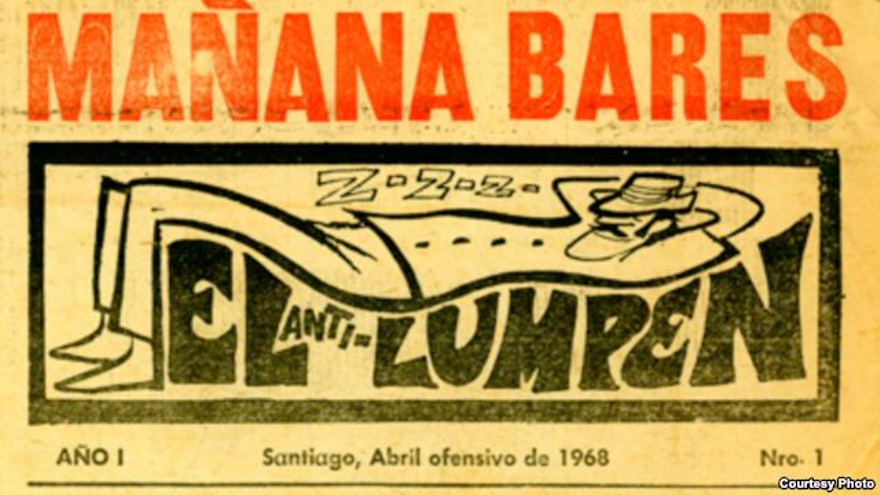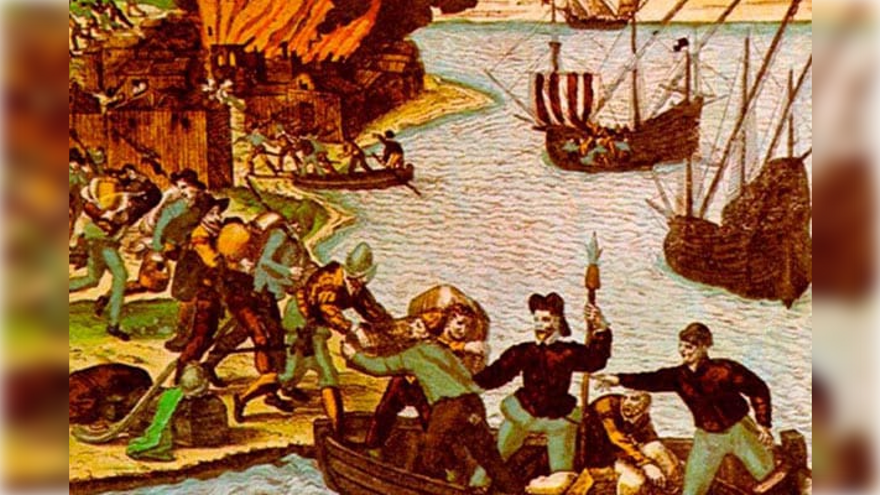
![]() 14ymedio, Yunior García Aguilera, Madrid, 29 November 2023 — A recurring phrase in Mexico is the one attributed to former President Porfirio Díaz: “Poor Mexico, so far from God and so close to the United States.” Although the expression brilliantly summarizes the history of a country, the truth is that many Mexicans have seen this proximity as quite the opposite. Even today’s President Andrés Manuel López Obrador himself modified the phrase before the North American Secretary of State, Antony Blinken, in 2021. For López Obrador, those 3,180 kilometers of border were a juicy blessing from which they should get every possible benefit.
14ymedio, Yunior García Aguilera, Madrid, 29 November 2023 — A recurring phrase in Mexico is the one attributed to former President Porfirio Díaz: “Poor Mexico, so far from God and so close to the United States.” Although the expression brilliantly summarizes the history of a country, the truth is that many Mexicans have seen this proximity as quite the opposite. Even today’s President Andrés Manuel López Obrador himself modified the phrase before the North American Secretary of State, Antony Blinken, in 2021. For López Obrador, those 3,180 kilometers of border were a juicy blessing from which they should get every possible benefit.
The US has land borders with Canada, to the north; and with Mexico, to the south. But the case of Cuba is quite unique. It is not only about the famous 90 miles that separate us, and that beat in the minds of a good number of Cubans like a fixed idea. There is also the land border that, de facto, covers 44 kilometers of wire fences at the Guantanamo Naval Base. The Mexican phrase could well be extrapolated to a country where poverty, the denial of God and belligerence with the North have been taken to absurd limits.
In 1961, 136 Catholic priests were expelled from Cuba. In his pathetic speech of 13 March 1963, Fidel Castro also attacked other religious groups that he called “instruments of imperialism.” For decades, admitting your religious creed could deprive you of studying for a university degree. I myself was “not approved” at the end of my secondary studies and could only aspire to study masonry at a trade school, despite having a notable academic record. My parents managed to remedy that matter and I was able to go to a civil construction polytechnic. I studied there for two years, without being able to build a single wall, because there were no bricks or cement anyway. continue reading
Some Jehovah’s Witnesses suffered unspeakable torture. One of them, after refusing to salute the flag, was hoisted as punishment on the flagpole itself, where he remained hanging upside down, under a hellish sun, for long hours.
Popular culture reflected the denial of faith that some had to feign. Adalberto Álvarez marked a musical milestone with his hit And what do you want them to give you?, where he sang: “There are people who tell you that they don’t believe in anything, and they go to consult each other early in the morning…” But others had worse luck. There are hundreds of testimonies of those who ended up in the UMAP camps, our concentration camps. I personally knew some Jehovah’s Witnesses who suffered unspeakable torture. One of them, after refusing to salute the flag was, as punishment, hoisted on the flagpole itself, where he remained hanging upside down, under a hellish sun, for long hours.
Although the regime never managed to completely distance us from faith, the visits of three Popes in recent years have also failed to erase the ditch imposed by an atheist State. The power aspired for the only sacred word to be that of the maximum leader. And the party cadres were to be the only clergy.
It already hurts to continue talking about Cuban poverty. It has become customary to recalculate the real value of the salary every week, watching helplessly as Alice in Wonderland’s potion is drunk. If the World Bank has established $2.15 a day as the poverty line, at what threshold do Cubans find themselves? We already know how the regime cheats with numbers to camouflage our misery in global statistics. With this they manage to deceive two or three clueless people who continue to mention Cuba as an example of certain “achievements.” But the Cuban who is there, biting into the mud, knows perfectly well what figures he carries in his stomach.
And we are left with the old and new relationship with the United States. The island’s politics have never depended as much on Washington’s sneezes as in these six decades. The North is the Goliath at whom Castro could not throw the stone, because Nikita Khrushchev took away the slingshot. The neighbor has become the magnet of blame, the perennial excuse, the wild card for the regime to to declare itself a victim before the world and hide its own atrocities against its citizens.
The truth is that the United States doesn’t care much about us. Its policies towards Cuba respond, above all, to the demands of a community with electoral weight in the state of Florida. The real conflict of the Cuban regime is not with the government of the Stars and Stripes, but with an ever larger exile and with more reasons to fight for the overthrow of that shameful dictatorship.
Poor Cuba, so far from God, from the United States, and from itself.
____________
COLLABORATE WITH OUR WORK: The 14ymedio team is committed to practicing serious journalism that reflects Cuba’s reality in all its depth. Thank you for joining us on this long journey. We invite you to continue supporting us by becoming a member of 14ymedio now. Together we can continue transforming journalism in Cuba.</p

